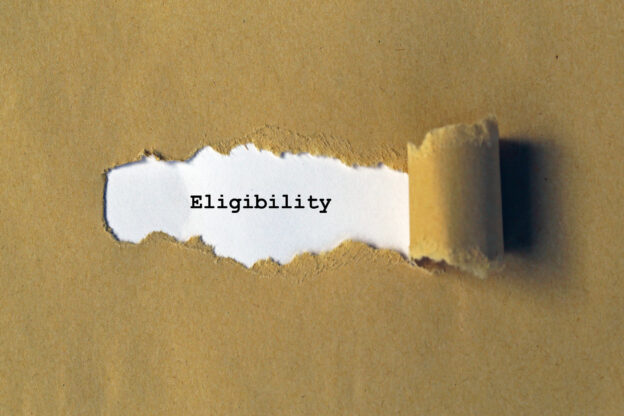The Payment Card Interchange Fee Settlement is a significant legal resolution that impacts a vast number of businesses across the United States. This settlement addresses the interchange fees—commonly known as swipe fees—that merchants pay to accept credit and debit card payments. Understanding the eligibility criteria for the payment card interchange fee settlement is crucial for businesses that aim to claim their share of the settlement funds. In this comprehensive guide, we will explore the various aspects of the eligibility criteria, including which businesses qualify, the specific transaction dates and types covered, exclusions, special cases, and more.
The settlement was the result of a class-action lawsuit filed by merchants who alleged that the card networks and their member banks had engaged in anticompetitive practices and had fixed the interchange fees at artificially high levels. The lawsuit sought to recover damages for the merchants and to change the rules governing interchange fees.
Introduction to the Payment Card Interchange Fee Settlement

The Payment Card Interchange Fee Settlement is the result of a class-action lawsuit against Visa and MasterCard, alleging that these companies engaged in anti-competitive practices by setting interchange fees at artificially high levels. These fees are charged to merchants whenever a customer uses a credit or debit card for payment. The settlement aims to provide financial compensation to businesses that were negatively impacted by these fees.
Eligibility Criteria for Businesses
To be eligible to participate in the Payment Card Interchange Fee Settlement, businesses must meet certain criteria. These criteria are designed to ensure that only businesses that have been directly affected by the alleged anticompetitive practices are able to benefit from the settlement.
1. Nature of the Business:
- Retailers: Physical and online stores accepting Visa or MasterCard payments.
- Service Providers: Businesses offering services such as hospitality, healthcare, and education.
- Non-Profits: Charitable organizations processing donations via Visa or MasterCard.
- E-commerce Platforms: Online marketplaces and platforms facilitating Visa and MasterCard transactions.
2. Transaction Dates:
Businesses must have accepted Visa or MasterCard payments between January 1, 2004, and January 25, 2019. This period encompasses the timeframe during which the alleged overcharges occurred.
3. Transaction Types:
- Credit Card Transactions: Payments made using Visa and MasterCard credit cards.
- Debit Card Transactions: Payments made using Visa and MasterCard debit cards, including signature and PIN-based transactions.
Which Businesses Qualify for the Settlement?
The Payment Card Interchange Fee Settlement represents a monumental resolution in the battle against excessive interchange fees imposed by Visa and MasterCard. This settlement offers a financial reprieve to numerous businesses that have processed transactions using these cards. However, determining whether a business qualifies for this settlement requires understanding the specific eligibility criteria.
The settlement covers a wide range of businesses, including retailers, restaurants, and other merchants that accept payment cards. To qualify for the settlement, a business must have accepted Visa or Mastercard payment cards between January 1, 2004, and January 25, 2019. This time period is known as the “Class Period.”
Qualifying Factors for Businesses
There are several factors that determine whether a business is eligible to participate in the settlement. These factors include the type of business, the location of the business, and the time period during which the business accepted payment cards.
Specific Transaction Dates and Types Covered
Understanding the specific transaction dates and types covered by the Payment Card Interchange Fee Settlement is crucial for businesses seeking compensation. This section provides a detailed overview of the relevant dates and transaction types included in the settlement.
Covered Transaction Dates
The settlement covers a substantial period, ensuring businesses affected by the alleged overcharges can seek compensation. The transaction dates are divided into two main periods:
Initial Period (2004-2013)
1. January 1, 2004, to November 27, 2013:
This period marks the beginning of the alleged overcharging practices by Visa and MasterCard. All transactions processed using these cards within this timeframe are eligible for the settlement.
Extended Period (2013-2019)
2. November 28, 2013, to January 25, 2019:
To address ongoing overcharges, the settlement also includes transactions processed during this extended period. Businesses that accepted Visa or MasterCard payments between these dates are covered.
Covered Transaction Types
The settlement includes various transaction types to ensure comprehensive coverage for businesses. The primary types of transactions covered are:
Card Present Transactions
1. Swiped Transactions:
Payments made by swiping a magnetic stripe card through a card reader.
2. Dipped (EMV Chip) Transactions:
Payments made by inserting an EMV chip card into a card reader.
3. Contactless (NFC) Transactions:
Payments made by tapping a contactless card or mobile device against a card reader.
Card Not Present Transactions
1. Online Transactions:
Payments made through e-commerce websites where card details are entered manually.
2. Phone Transactions:
Payments made over the phone by providing card details to a merchant.
3. Mail Transactions:
Payments made via mail where card details are provided on a physical form.
Recurring Transactions
1. Subscription Payments:
Regular payments set up for subscription services, such as streaming services, magazines, and software licenses.
2. Automatic Billing:
Recurring payments for utilities, memberships, insurance premiums, and other services billed automatically.
Exclusions and Special Cases
While the Payment Card Interchange Fee Settlement aims to provide broad compensation to businesses affected by Visa and MasterCard overcharges, there are specific exclusions and special cases that businesses need to be aware of. This section outlines these exceptions to help businesses understand whether they qualify for the settlement and navigate any unique circumstances.
Exclusions
Certain transactions and businesses are excluded from the Payment Card Interchange Fee Settlement. Understanding these exclusions is crucial to determine if a business is eligible to file a claim.
Non-Visa and Non-MasterCard Transactions
1. Other Card Networks:
- Transactions processed through card networks other than Visa and MasterCard, such as American Express or Discover, are not covered by the settlement. Only transactions involving Visa or MasterCard are eligible.
Post-Settlement Period Transactions
2. Transactions After January 25, 2019:
- Payments processed after January 25, 2019, are excluded from the settlement. The settlement only addresses overcharges that occurred up to this date.
Certain Business Types
3. Government Entities:
- Government entities and agencies are generally excluded from the settlement. The class-action lawsuit and subsequent settlement primarily focus on private businesses and non-profit organizations.
4. Financial Institutions:
- Financial institutions, such as banks and credit unions, are also excluded from the settlement. These entities typically do not fall within the class definition outlined in the settlement agreement.
Special Cases
While many businesses fall within the general eligibility criteria, some may have unique circumstances that affect their eligibility. These special cases require careful consideration to ensure accurate claims.
New Businesses
1. Businesses Established After January 1, 2004:
- Businesses that were established after January 1, 2004, but before January 25, 2019, can still qualify for the settlement if they accepted Visa or MasterCard payments during the covered periods. These businesses should review their transaction history within the eligible dates.
Mergers and Acquisitions
2. Companies Involved in Mergers or Acquisitions:
- Businesses that have undergone mergers or acquisitions need to consider the transaction history of all entities involved. This includes consolidating transaction data from the acquired companies to ensure a comprehensive claim.
Multi-Location Enterprises
3. Businesses with Multiple Locations:
- Enterprises operating multiple locations should aggregate transaction data from all locations to determine their total eligible transactions. Each location’s transactions should be included in the claim to maximize compensation.
Franchise Operations
4. Franchisees and Franchisors:
- Franchise operations may face unique challenges in determining eligibility. Franchisees should compile transaction data independently, while franchisors may need to provide guidance and support to ensure all eligible franchise locations file claims.
Understanding the Settlement Process
Once a business has determined that it is eligible to participate in the Payment Card Interchange Fee Settlement, it must follow a specific process to submit a claim and receive compensation. The settlement process is overseen by a court-appointed administrator, who is responsible for reviewing and approving claims.
To participate in the settlement, a business must submit a claim form that provides information about its payment card transactions during the Class Period. This information is used to calculate the amount of compensation that the business is entitled to receive. The administrator then reviews the claim and determines whether it meets the requirements of the settlement.
Frequently Asked Questions (FAQs)
Q.1: How much compensation can a business expect to receive?
The amount of compensation that a business is entitled to receive depends on several factors, including the volume of its payment card transactions and the interchange fees that it paid. On average, businesses can expect to receive a percentage of the interchange fees that they paid during the Class Period.
Q.2: How long does the settlement process take?
The settlement process can take several months or even years to complete. This is because there are thousands of businesses that are eligible to participate in the settlement, and each claim must be reviewed and approved by the administrator.
Q.3: Can a business opt out of the settlement?
Yes, businesses have the option to opt out of the settlement if they wish to pursue their own legal action against the card networks. However, opting out of the settlement means that the business will not be eligible to receive any compensation.
Conclusion
The Payment Card Interchange Fee Settlement has had significant benefits for businesses that have been affected by high interchange fees. By providing compensation to these businesses, the settlement has helped to level the playing field and promote fair competition in the payment card industry.
In addition to the financial benefits, the settlement has also had broader implications for the payment card industry as a whole. It has led to changes in the rules governing interchange fees and has increased transparency and competition in the industry. This has ultimately resulted in lower costs for businesses and consumers alike.
Overall, the Payment Card Interchange Fee Settlement has been a landmark agreement that has had a positive impact on businesses and consumers. By understanding the eligibility criteria and participating in the settlement process, businesses can take advantage of the benefits and implications of this important legal agreement.

